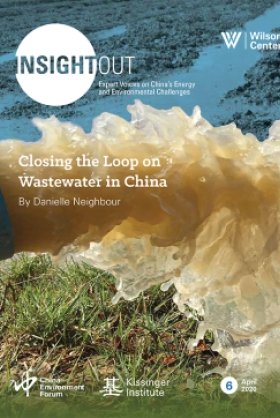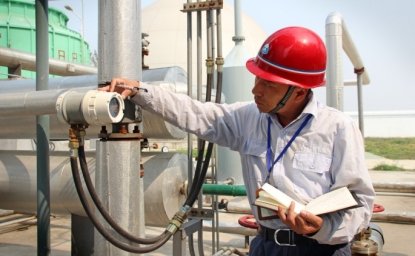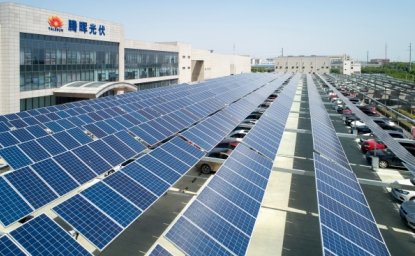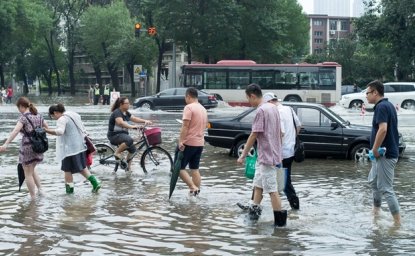InsightOut Issue 6 - Closing the Loop on Wastewater in China



By Danielle Neighbour
The expression "Nine Dragons Rule the Waters" has long been used to describe the contentious and fragmented roles and responsibilities of government agencies managing water in China. In the 1980s economic reform era, these competing and overlapping "dragons" often produced poor and contradictory policies that failed to reign in water pollution from China's rapid urbanization and industrialization. In 2001, when Beijing was chosen to host the 2008 Summer Olympics, untreated wastewater and agricultural runoff had turned many of China's rivers black and numerous large lakes were green with toxic algae blooms. At that time, despite wastewater treatment regulations, nearly 80 percent of China's sludge went untreated, making it a growing source of methane emissions — a potent greenhouse gas.
China's mountains of municipal and industrial sludge and lack of rural wastewater treatment sparked Xi Jinping to declare wastewater a major part of his "war on pollution" in 2018. However, treating wastewater and sludge can be an expensive battle to wage and despite passage of the stringent Water Ten Plan in 2015, water quality still has not met anticipated targets in one-third of the country.
To advance its wastewater and carbon reduction targets, China can learn from cities such as New York, Washington DC, and Singapore to tap three marketable resources from sludge to close the loop on wastewater. Specifically, Chinese wastewater plants can: (1) capture methane to generate low-carbon power, (2) treat sludge digestate to make compost, and (3) recycle the wastewater to meet multiple municipal and industrial water needs. All three bring down the costs of wastewater and sludge treatment as methane can power wastewater treatment plants and the digestate and recycled water can be sold.
Managing Editors: Samuel Moore and Richard Liu
Views expressed within this report are the author's own and not necessarily those of the U.S. Government

China Environment Forum
China’s global footprint isn’t just an economic one, it’s an environmental one. From BRI investments in Africa and Asia to its growing presence in Latin America, understanding China’s motivations, who stands to gain - and who stands to lose - is critical to informing smart US foreign policy. Read more


Kissinger Institute on China and the United States
The Kissinger Institute works to ensure that China policy serves American long-term interests and is founded in understanding of historical and cultural factors in bilateral relations and in accurate assessment of the aspirations of China’s government and people. Read more

Explore More
Browse Insights & Analysis
New Security Beat blog

Innovative Sludge-to-Energy Plant Makes a Breakthrough in China

Chinese Solar Shines at Home and on the Road
